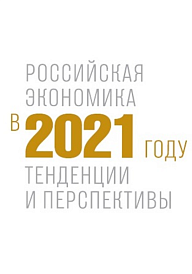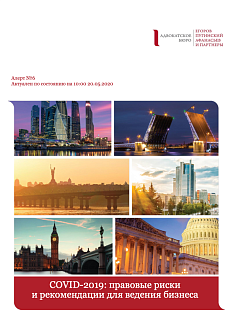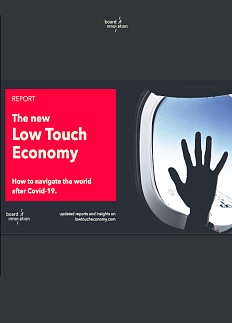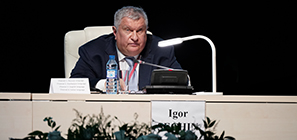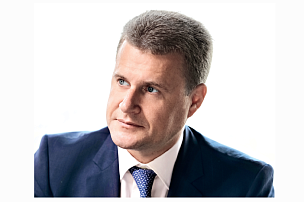This publication by The Gaidar Institute for Economic Policy provides a detailed analysis of the most significant trends in the Russian economy, global trends in the social and economic development.
The Roscongress Foundation presents the salient points of the publication accompanied by fragments of broadcasts of relevant panel discussions from the business programme of international events held by the Roscongress Foundation.
The coronavirus pandemic presented a key challenge to socioeconomic and political development across the majority of countries.
The unprecedented consequences of the pandemic are evidenced by economic data. The shrinkage, in 2020, of global GDP by 3.4% was significantly greater than that observed during the acute phase of the 2009 crisis (by 1.3%). The authors of the publication point out that although the crisis caused by the pandemic was initially triggered by non-economic factors, it produced some huge macroeconomic and structural shifts. The analysts notice a correlation between the depth of the recession and countries’ dependence on globalization processes: the developed economies declined by 4.5%, and the developing, by 2.1%. However, the recovery across the developed economies was likewise faster.
Global challenges acted as a catalyst for changes in the world economy in 2021.
The key features of the year 2021 were the pandemic, economic dynamics and global inflation, as well as a sudden sharp focus on the climate agenda.
The pandemic continued in the form of several new waves. However, as vaccination campaigns progressed, the economic downturn gave way to a recovery growth followed by a recovery in employment. Many of the leading economies recovered, or even surpassed their 2019 levels.
And at the same time, inflation began to rapidly gain in strength around the world, moving above the target benchmarks nearly in all the countries that had been implementing inflation targeting policies.
The authors of the publication believe that short-term economic prospects depend to a great degree on the prospects for combating the pandemic. As for long-term structural shifts triggered by the pandemic, the experts single out the increasing attention of both governments and individuals to healthcare and education, and development of digital technologies and virtual (augmented) reality, as well as infrastructure (digital and physical).
The influence of the climate agenda on various socioeconomic policy aspects (monetary, fiscal, competitive, structural) and the labor market prospects is becoming increasingly stronger. Moreover, the environmental agenda is no longer reduced just to climate change, but addresses various aspects of life globally and on a national level. ESG (ecology-social-governance) is becoming one of the key concepts.
The Gaidar Institute analysts also call attention to economic populism, a trend that in recent years has been characteristic of the policies of many developed countries. It includes expansionary fiscal policy and the idea that debt monetization, protectionism, and trade wars are necessary.
Video: https://roscongress.org/sessions/eef-2021-biznes-dialog-rossiya-asean/search/#00:24:05.632
The Russian economy has recovered from the recession caused by the pandemic.
The Russian economy demonstrated a high recovery rate, surpassing the pre-crisis level as early as Q2 2021. At year-end 2021, the economic growth index stood at 4.7%. The labor market recovered, with the unemployment rate at the year-end of 2021 close to 4.3%. The labor force increased by 1.7 mn. Job postings from employers jumped up by 25%, and the ratio of unemployed people to job posts declined to 1.7, compared to 2.9 in 2020 and 1.9 in 2019. Real disposable income resumed growth.
The Gaidar Institute analysts believe that the key issues that the Russian economy is going to deal with in the near future are similar to the issues that almost all developed countries are currently faced with. These are the prospects for economic growth, suppressing inflation and avoiding stagflation, and the need for careful fiscal policy.
Gain more insights about economic development and banking in the Economic progress and Monetary policy sections of the Roscongress Information and Analytical System, and about possible ways to stabilize the economy in a pandemic in the StayHomeEconomy section.


